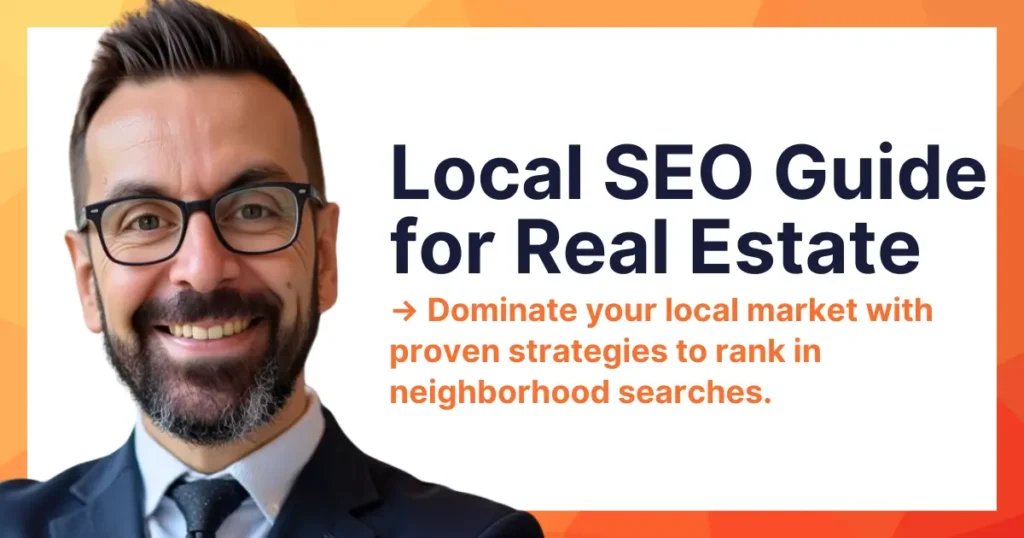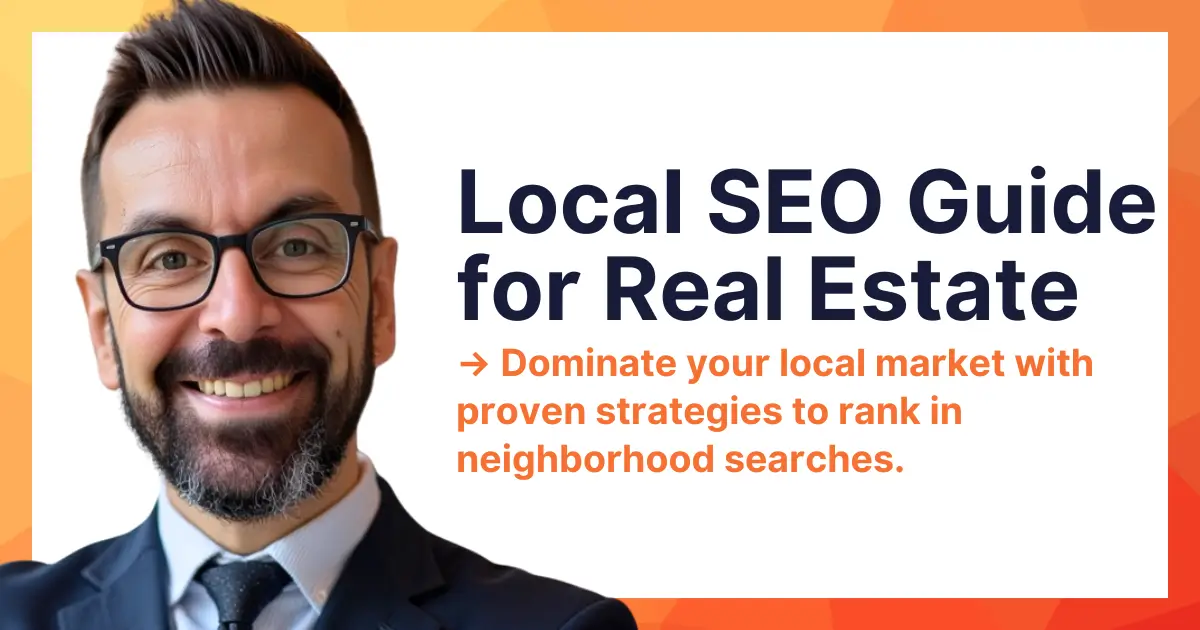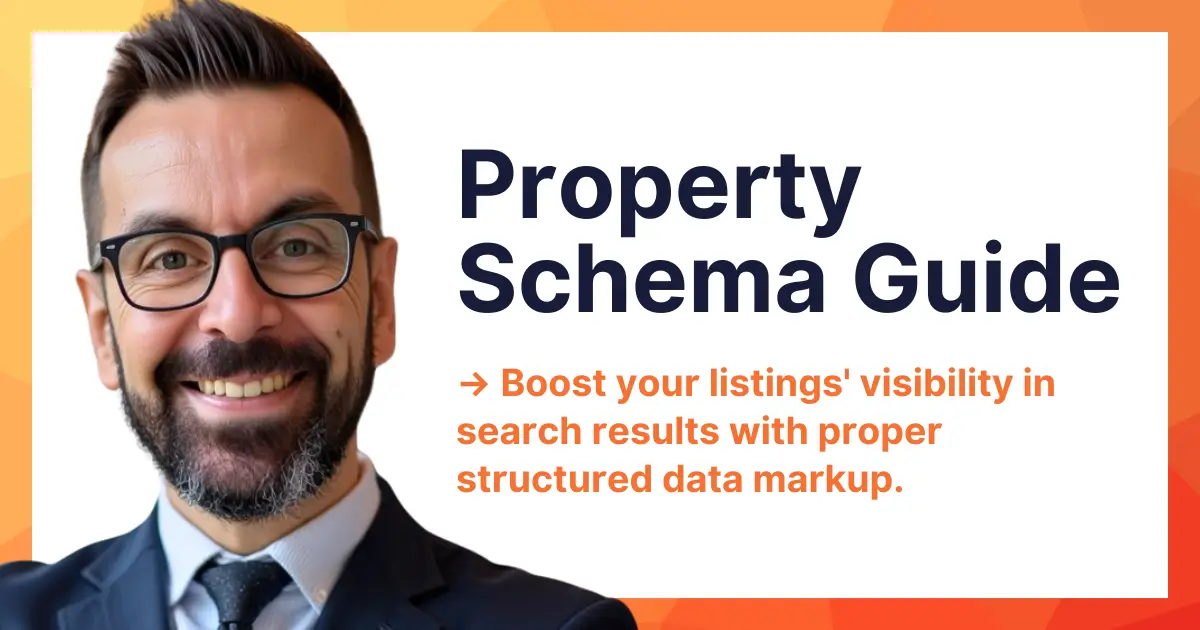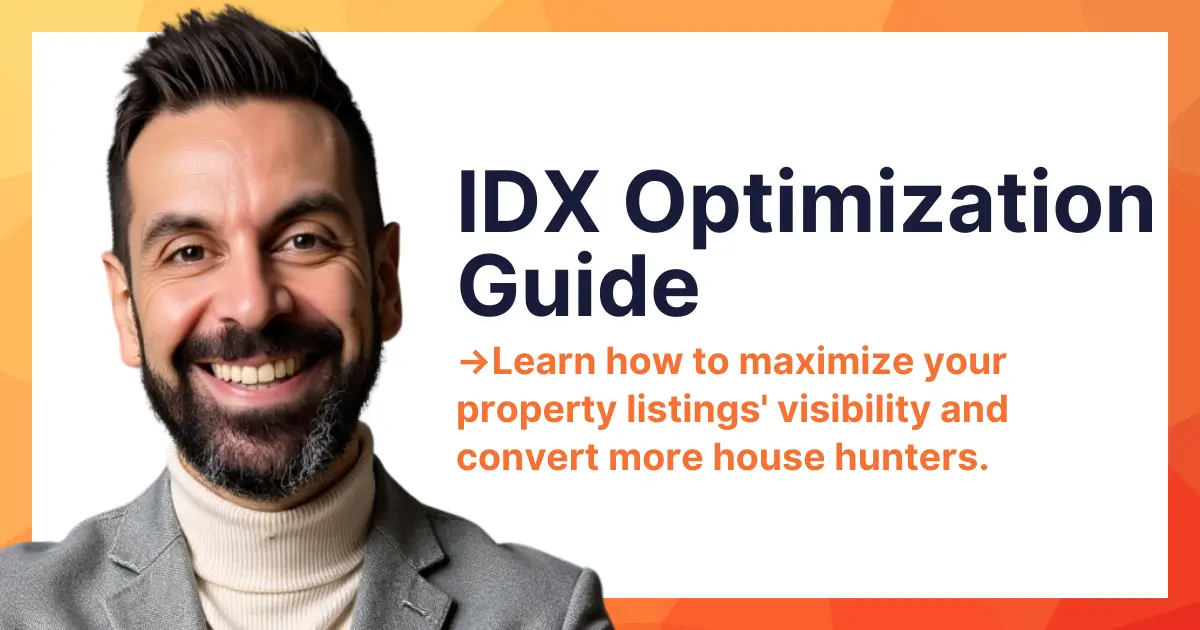Local SEO for real estate is more than simply adding property listings to your website. It involves understanding your market, building trust with people in your area, and making sure your business appears at the top of local search results. In this long-form guide, you will learn why local SEO is essential in the competitive real estate market, which steps you should follow to optimize your presence, and how to measure success. You will also discover common pitfalls to avoid so you can outshine your competitors and build an online foundation that delivers real-world results.
By the time you finish reading, you will have a detailed game plan to earn higher rankings, attract the right buyers and sellers, and create a sustainable flow of leads for your real estate business.
Why Local SEO Matters for Real Estate
Local SEO goes beyond standard optimization tactics. When someone searches for “condos for sale in Tampa” or “realtor near me,” Google aims to show them the most relevant results in their immediate area. If your business doesn’t appear in those top spots, you could be missing out on motivated clients who are ready to move forward.
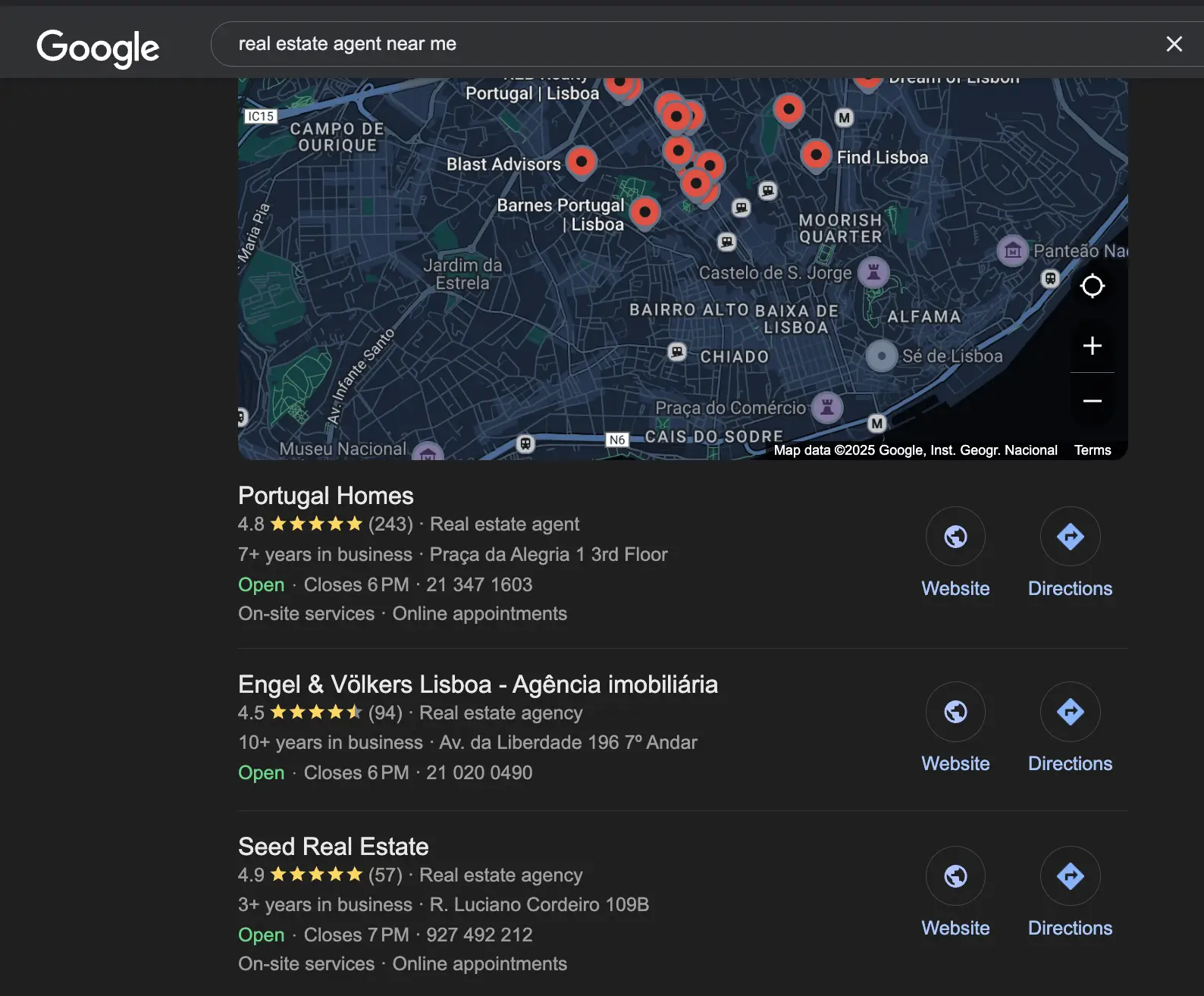
Local real estate transactions are often relationship-based. Buyers want agents who know specific neighborhoods, school districts, and local markets. A strong local SEO plan ensures you connect with these buyers at the precise moment they search online.
3 Benefits of local SEO for real estate:
- You build credibility by appearing in the Local Pack, a coveted area of Google’s results that highlights top local businesses along with a map and reviews.
- You attract leads who already have a clear interest in your city or region, which means they are more likely to convert.
- You can dominate micro-markets and niche neighborhoods that large aggregator sites do not focus on.
Local SEO is vital because it bridges online search behavior with offline real estate transactions. By focusing your strategy on hyper-local searches, you connect with your ideal clients in your target areas, increase brand awareness, and grow your business in a sustainable way.
Core Components of Local SEO for Real Estate
Building a robust local SEO strategy involves several key steps. You can break it down into manageable tasks that create a powerful, cohesive approach. In this section, you will discover the building blocks that make local optimization effective, including the crucial role of your Google Business Profile, the importance of consistent citations, and how to establish your real estate website as an authority in your market.
1. Google Business Profile
Your Google Business Profile (GBP) is one of the most important tools you have for local visibility. Appearing on Google Maps and in the Local Pack can give you prime real estate in search results. When optimized, GBP can drive traffic to your site, generate calls, and encourage more walk-in visits, if you have a physical office location.
How to Optimize Your Google Business Profile:
- Complete every detail: Make sure your name, address, and phone number (NAP) match your website and any directory listings. Include your official website link, hours, and business categories.
- Use location-specific keywords: For example, if you specialize in waterfront condos in Miami, be sure to mention “waterfront condos in Miami” in your profile description in a natural way.
- Add compelling photos: High-quality images of properties, your team, or notable local landmarks assure potential clients that you understand the area.
- Post regularly: GBP allows you to publish short updates about open houses, new listings, and local market insights. This helps keep your profile fresh.
- Encourage reviews: Positive reviews boost your ranking and act as social proof. Ask happy clients to share their experience, and always respond to all reviews (good or bad) in a polite and professional manner.
Your Google Business Profile is like an online storefront. When you optimize it, you show potential customers that you are active, legitimate, and knowledgeable about your real estate market. Maintaining a strong GBP will keep you competitive in local results.
2. On-Page and Technical SEO
On-page and technical SEO ensure search engines can crawl and understand your website content. They also provide an excellent user experience, which is crucial for guiding potential buyers toward the information they need. By optimizing everything from meta tags to site speed, you set the stage for higher local rankings and better visitor engagement.
Key Focus Areas
1) Relevant Titles and Meta Descriptions
Create page titles that include location-based keywords, such as “Best Real Estate Listings in Scottsdale.” Add meta descriptions that convey the page’s main topic, while using a few keywords to help Google match your page to local queries.
2) Mobile-Friendliness and Speed
Since many homebuyers or sellers use smartphones to browse listings, prioritize mobile responsiveness. Large images can slow your site, so compress them to ensure fast load times.
3) Structured Data Markup
Schema markup, especially LocalBusiness schema, sends Google more specific signals about who you are and what you offer. Consider including structured data for your office location, operating hours, and contact info.
4) Easy Navigation
A user-friendly menu system helps visitors find what they need quickly, whether they are looking for “Luxury Homes in Las Vegas” or “Starter Homes near downtown Orlando.”
Polishing on-page and technical SEO improves not only your search engine rankings but also the journey your clients experience on your site. A fast, user-friendly website serves as a solid foundation for your entire local SEO plan.
3. Citations and NAP Consistency
Citations are online mentions of your business name, address, and phone number. They can appear on local directories, news articles, or social media pages. Search engines cross-reference these mentions to confirm your business details, which boosts your authority in a specific region.
Maintaining Accurate Listings
A mismatch in your NAP (for example, “Main St.” in some places and “Main Street” in others) can confuse search engines and cause your site to drop in rankings. When all your listings match perfectly, Google is more likely to view your business as genuine.
Where to List Your Business
- Online Directories: Examples include Yelp and Realtor.com.
- Local Real Estate Platforms: These vary by region but can include specialized directories focusing on housing or rentals.
- Chamber of Commerce Websites: Memberships in local business associations build trust and help your brand appear more established to both customers and search engines.
Citations and NAP consistency form the backbone of local SEO. If you keep every detail accurate and stay active on trusted directories, you will signal to Google that you are a reliable resource. This consistency can increase your chances of appearing in top results when homebuyers or sellers look for services in your area.
4. Building Local Authority
Search engines rank websites higher when they appear credible. One way to demonstrate credibility is through links from respected local sources. Another is by leveraging community partnerships that reinforce your expertise and highlight your connection to the area.
Ways to Earn High-Quality Local Backlinks:
- Sponsor Local Events: Contribute to a neighborhood festival or charity run, and ask the event organizers to link back to your site.
- Collaborate with Local Businesses: Partner with coffee shops, moving companies, or interior designers who can mention you on their own sites.
- Offer Market Insights to Media: Local journalists often need real estate data or expert commentary. Providing helpful quotes can lead to valuable press mentions with backlinks.
Generating local backlinks is about creating real connections and showing you have deep roots in your community. Whether you become known for your local market insights or you sponsor charity events, these alliances give you the local credibility that search engines love.
5. Reviews and Reputation Management
Reading reviews is one of the first steps a buyer takes when researching an agent or brokerage. Search engines also consider the volume and quality of reviews when ranking your GBP and website. If your business has no reviews or a lot of negative feedback, your online presence can suffer, regardless of how much you optimize other factors.
How to Cultivate and Manage Reviews:
- Encourage feedback: Ask every client to post a review, whether they just sold their home, bought an investment property, or used your rental management services.
- Reply consistently: Thank clients for positive reviews and address any negative feedback by offering practical solutions.
- Showcase reviews: Add the best testimonials to your website and social media accounts to highlight customer satisfaction.
A strong review profile reassures potential clients that you deliver excellent service and have a proven record of success. By actively monitoring and responding to reviews, you demonstrate transparency, show you value client input, and help your SEO efforts.
Optimizing Content for Local Audiences
Content is king in any industry, but it is especially critical for real estate. People looking to buy or sell a home often have many questions and concerns: How are property taxes in a certain neighborhood? What is the local school system like? By answering these questions on your site, you can capture a broader range of leads, shape your brand as a trusted authority, and organically appear in search results for relevant keywords.
1. Neighborhood Pages
Neighborhood pages serve as deep dives into specific areas, offering valuable information for buyers and sellers. They can include details about local amenities, market trends, and property listings. This approach highlights your expertise at a hyper-local level, helping you stand out.
Elements of a High-Converting Neighborhood Page:
- Area Description: Mention local attractions, dining options, and recreational facilities.
- Property Types: Talk about whether the neighborhood features condos, single-family homes, or luxury properties.
- Local Statistics: Cite median home prices, average days on market, and historical real estate trends.
- Searchable Listings: Embed a property search tool or a direct feed of available homes in that neighborhood.
Neighborhood pages not only drive local traffic but also foster trust by showing you have boots-on-the-ground knowledge of the places you serve. When homebuyers or sellers discover your detailed community insights, they often see you as their primary resource for that area.
2. Blog Content
Regular blog posts keep your website fresh, encourage visitors to return, and help search engines understand that you are active. Effective blogging involves more than just posting generic articles. You want to create content that caters to the questions and concerns of potential clients in your location.
Writing Engaging, Localized Blog Posts:
- Start with Keyword Research: Tools like Google Keyword Planner can show which search terms, like “First-time homebuyer tips in Phoenix” are hot in your market.
- Use an Authentic Voice: Speak like a local and highlight real concerns, such as seasonal weather patterns, property taxes, or new zoning regulations.
- Add Visuals and Data: Charts showing average home costs, photos of the neighborhood, or videos of new listings can keep readers engaged.
Thoughtful blogging that zeroes in on local topics not only boosts your website’s search rankings but also makes your content more shareable. When you add authentic and valuable information, people naturally trust your real estate expertise.
3. Content Refreshes
Online information becomes outdated quickly, especially in real estate where market conditions shift year to year or even season to season. Regularly refreshing your content helps you stay current, rank well, and offer value to returning visitors.
Ways to Refresh Content:
- Update old statistics: If you have a page discussing median home prices from last year, replace them with this year’s figures.
- Add new images: Show off recent listings or updated neighborhood photos to keep visuals compelling.
- Restructure your headings: Make the organization clear, add or remove sections as market trends shift, and add new internal links to fresh content on your site.
By revisiting and updating existing articles or neighborhood pages, you stay aligned with Google’s preference for accurate, timely results. Regular refreshes also signal to your audience that you are constantly checking for the latest information.
Mobile Optimization
Real estate searches are often performed on mobile devices, especially by busy homebuyers. If your site doesn’t display correctly on smartphones, potential leads may leave quickly. This impacts search rankings and reduces conversions.
Mobile Optimization Best Practices:
- Use a responsive design. Your site should adapt to different screen sizes, so people can explore listings without excessive scrolling or pinching.
- Compress your images. Large photo files can cause slow load times, which is frustrating on mobile.
- Streamline navigation. A clean menu, clear calls to action, and straightforward property filters help users find the data they need quickly.
A well-optimized mobile site boosts user satisfaction, increases time on page, and sends strong signals to search engines that you offer relevant content. If you make the process easy for clients, you will see measurable improvements in both leads and rankings.
Avoiding Common Pitfalls in Local SEO
Even with careful planning, it is easy to make missteps that can weaken your local SEO and reduce the flow of new leads. Knowing these pitfalls ahead of time helps you avoid penalties and ensures your efforts produce consistent results.
Watch Out for These Mistakes:
- Inconsistent NAP: Having slight variations in your address or phone number across platforms confuses both Google and potential clients.
- Keyword Stuffing: Repeating the same phrases, such as “best realtor in Austin,” too many times makes your content look spammy. Focus on natural, reader-friendly usage instead.
- Neglecting Reviews: Failing to respond to reviews, or never asking for them, misses a big opportunity for social proof and improved local rankings.
- Ignoring GBP Posts: Your Google Business Profile is a critical local asset, so keep it active. Neglected profiles may not rank well and can leave potential clients with outdated information.
Steering clear of these mistakes keeps your reputation intact and your local SEO efforts moving in the right direction. Thorough research, a consistent online presence, and a genuine focus on customer satisfaction will safeguard you from most major pitfalls.
Measuring Success and Next Steps
Optimizing for local SEO is an ongoing process. You need a systematic way to track what is working and identify areas to improve. This is especially important in real estate, where markets fluctuate seasonally, and search trends can shift quickly.
Key Performance Indicators (KPIs) to Track
- Local Map Pack Rankings: See if your business appears in the top three local results for relevant terms like “real estate agent in [your city].”
- Organic Traffic: Monitor how many local visitors reach your site via search engines. Check for an increase in neighborhood-specific landing page views.
- Leads and Conversions: Track phone calls, form submissions, and direct messages to measure whether your SEO efforts translate into viable sales leads.
- Review Volume and Ratings: Keep an eye on the number of reviews you receive each month, along with any changes in average star rating.
Scaling Your Strategy
As you see positive outcomes, like an uptick in clients or improved search visibility, you can broaden your approach. Consider creating location pages for additional neighborhoods, sponsoring more local events, or generating new types of local content such as virtual home tours.
Local SEO requires continuous attention, but the rewards are well worth the effort. When you analyze your KPIs, refine your strategy, and stay consistent with best practices, you can achieve a dominant presence in your market.
Final Thoughts
Local SEO in real estate is about meeting your future clients where they are searching: at the exact moment they need expert guidance in buying or selling a property. If you focus on critical aspects like Google Business Profile optimization, consistent citations, local authority building, and mobile-friendly content, you stand out in a crowded market. Creating in-depth neighborhood pages, regularly blogging on local topics, and encouraging honest reviews further position you as a trusted advisor, rather than just another listing service.
As you continue refining your local SEO strategy, keep an eye on shifting market conditions, emerging digital platforms, and new ways to engage with your community. Local SEO is never static, but each step you take moves you closer to stronger rankings and more qualified leads. The end result is a thriving real estate business that both search engines and clients recognize as the local authority.
Use this guide as a reference whenever you need to audit your website, refresh your keyword strategy, or expand into new areas. Over time, these local SEO best practices will become second nature and help you stay ahead.
You can learn more with these articles:


